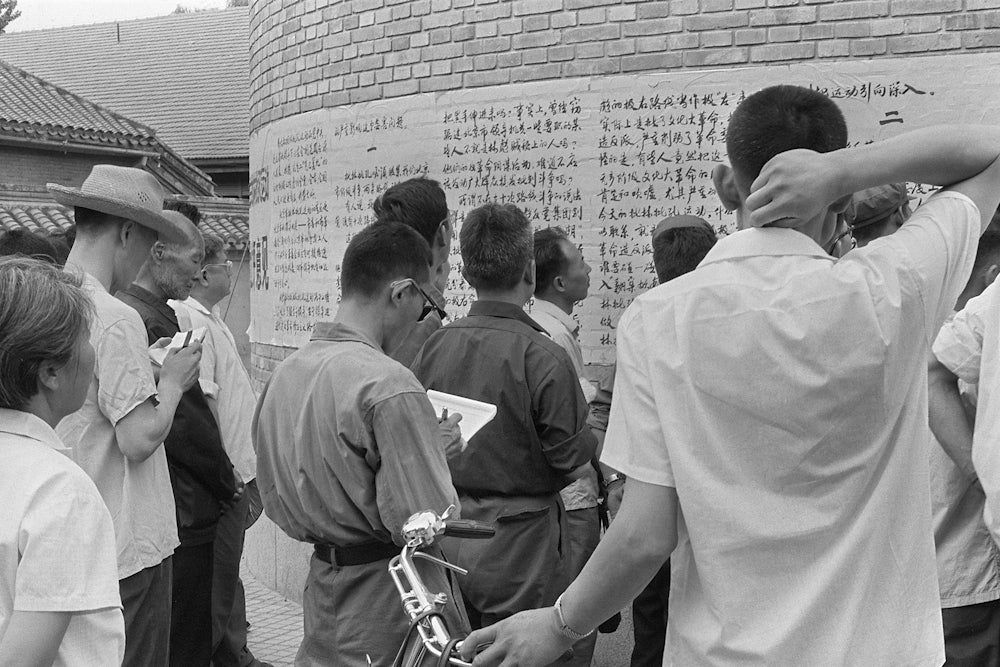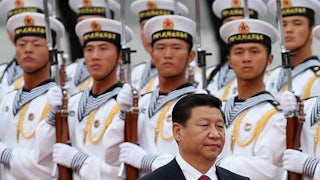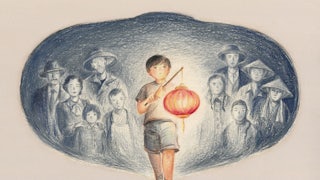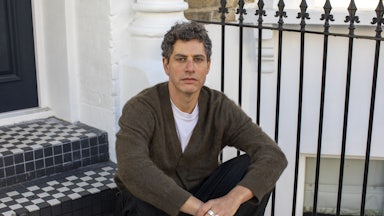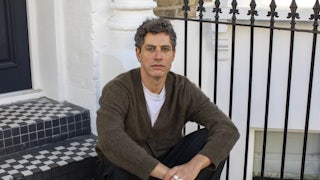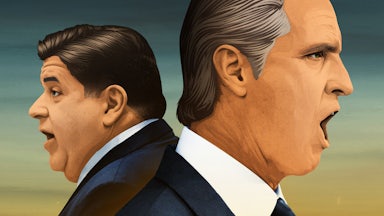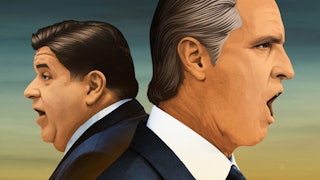Political gales are again blowing across China, but their direction is unclear. Is a fresh cultural revolution in the offing, as several Western correspondents in Hong Kong are forecasting? Are the radical elements that convulsed China in the mid-1960s about to go on another rampage, and if so, who is inspiring them? How much control do Premier Chou En-lai and his moderate supporters exercise? What role is the army playing? To what degree is Mao Tse-tung still active and in which direction is he steering events? As is often the case in trying to assess the Chinese scene, questions outnumber answers. It is apparent, though, that China is by no means as stable as foreign visitors have been claiming, and the uncertainties are likely to affect its new relations with the West.
From all reports the atmosphere today recalls early 1966 when Mao was maneuvering to uncork millions of Red Guards and other young militants in his drive to overthrow the entrenched Communist party apparatus. Now, as then, students are assailing the school system as “bourgeois.” One campaign was started last summer by a youth in the northeastern province of Liaoning who objected to university entrance examinations on the grounds that they penalize the less educated children of peasants and workers, and thereby disfavor the proletariat. Other youths in Shanghai are using the same argument to legitimize copying from their comrades—“exchanging opinions” they call it—during tests. A radio broadcast from the southern province of Kwangsi resurrects a familiar theme of the Cultural Revolution by proclaiming a “people’s war” against the “old ideology, culture, customs and habits of the exploiting classes,” and a local newspaper has revived the slogan “rebellion is justified,” which the Red Guards once shouted as they rampaged against the authorities. A similar dictum of the Cultural Revolution—“without destruction there can be no construction”—is also being invoked, and another indication of possible turbulence is reflected in the return of wall posters impugning alleged political miscreants. Meanwhile the campaign that began last summer to repudiate Confucius, whose concepts are the core of Chinese philosophy, goes on.
Some analysts perceive a renewed xenophobic trend as well in the fact that Peking propagandists are attacking classical Western composers like Beethoven and Schubert as representative of “petty bourgeois” culture. The other day, for the first time since it opened last May, the Chinese Liaison Office in Washington sent a select number of diplomats, scholars and journalists the reprint of a People’s Daily article denouncing the Italian movie director Michelangelo Antonioni for “distorting” China in a film he produced two years ago. By distributing the article abroad, the Chinese appear to be warning foreigners who hope to visit China that what they consider hostile criticism will not be tolerated. Another Westerner under attack is the American scholar Owen Lattimore, an early target of Joseph McCarthy and Chou En-lai’s guest in late 1972, who is now branded a “reactionary historian” and an “international spy.”
But matching these manifestations of a radical recrudescence are many signs that Chou En-lai’s moderate faction is still predominant. A few weeks ago, for example, the old Communist party bureaucrat Teng Hsiao-ping, who reappeared last spring after having been purged during the Cultural Revolution, was taken back into the Politburo and may now be the most powerful figure in China after Mao and Chou. The country’s regional military commanders would not have been reshuffled to new posts, as they were at the beginning of the year, if Chou and his colleagues feared a serious attempt by the leftists to assert themselves. It is equally hard to imagine that Chou would have returned the American captured during China’s recent island war with South Vietnam were his government under strong pressure from extremists. In my estimation much of the seemingly radical rhetoric emanating from the Chinese these days is, in reality, directed against the radicals.
The denunciations of Beethoven, for instance, sound like the voice of the dogmatists, but underlying them is an episode that may explain their real significance. Last September, when Eugene O^and y was touring China with the Philadelphia Orchestra, he was asked to play Beethoven’s Sixth Symphony (“The Pastorale”) by Mao’s wife Chiang Ching, the termagant of the Cultural Revolution and still the idol of the radicals. Ormandy had not brought the music with him, but she sent an airplane from Peking to Shanghai to fetch a somewhat frayed score, and the orchestra performed the work. Thus the attacks against Beethoven may be an esoteric attack against Chiang Ching and her radical backers, rather than an obvious assault against Western culture. Similarly, a careful reading of the diatribe against Antonioni may mean that he is being used as a surrogate target for the radicals. The People’s Daily article describes him as a “counterrevolutionary” posing as a “leftist,” which is the label customarily pinned by the moderates on their adversaries. He is also charged with attempting to “fan up dissatisfaction among the Chinese people,” another accusation leveled against the volatile radicals. And, among other things, the article affirms that “history cannot be turned back” —an assertion by the moderates that the Cultural Revolution is finished. The offensive against Confucius appears as well to be directed against the radicals, since it obliquely assails those who are striving to restore the power of leftist officials who came to the fore during the Cultural Revolution and have since been dismissed.
I am inclined to conclude from all this that the radicals, though noisier than they have been in years, are essentially on the defensive as Chou En-lai and his group intensify their efforts to prevent new upheavals. The radicals sustained a setback at the Communist party congress last fall, when Chiang Ching and Yao Wen-yuan, figures who had soared into prominence during the Cultural Revolution, were downgraded. Another radical, the young Shanghai activist Wang Hung-wen, was promoted at the Congress, but his elevation appears to have been a compromise to placate the leftists and he has probably been eclipsed since then by Teng Hsiao-ping, the old party stalwart. Mao’s position in this situation is, as usual, vague. At 80 he no longer manages China’s day-to-day affairs, but, like a detached deity, hands down ambiguous directives that are open to diverse interpretations. One belief he has always held is that struggle in itself purifies the bureaucracy, and I would guess he is encouraging the present tension with that in mind. In one realm, however, Mao’s attitude is unequivocal: he passionately distrusts and detests the Soviet Union. As long as he lives, therefore, the chances are good that China will maintain its links with the US and other Western nations as a way of counterbalancing the Kremlin.
But because of internal squabbles, the Chinese leaders apparently feel that they cannot keep up the momentum of cultural, athletic, journalistic and other exchanges that followed their switch to “ping pong diplomacy” three years ago. It was reported in these pages not long ago that a delegation of Chinese doctors who had visited the US came under a cloud back in Peking for having praised some aspects of American medicine. More recently a longstanding plan for the Paris Symphony Orchestra to tour China was canceled and other such trips, including one by Sen. Henry Jackson, are being delayed. These moves suggest that the moderates who run foreign policy are seeking to minimize contacts with foreigners in order to deprive the more chauvinistic radicals of nationalistic ammunition. It does not signify that a rupture of the Sino-American link is imminent, though it is reasonable to guess that the excessively euphoric relationship between the US and China that stemmed from President Nixon’s visit to Peking is over.
